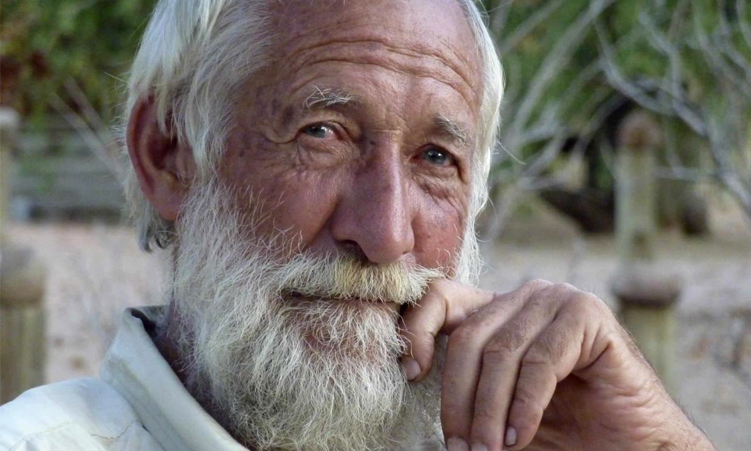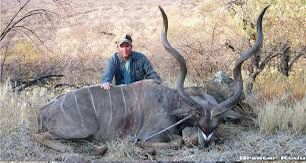Conservationist Garth Owen- Smith, who has died at the age of 76, was a giant in his field. He laid the foundation for Namibia’s internation- ally acclaimed community-based conservation movement.
This assessment was part of a stream of tributes to Owen-Smith that followed the news of his death on Saturday.
John Kasaona, director of Integrat- ed Rural Development and Nature Conservation (IRDNC), of which Owen-Smith was a co-founder, said: “We have lost a truly people-centred person, an unwavering architect of conservation.”
Kasaona, whose father worked with Owen-Smith in the early 1980s, recalled: “He became a father to me after my own father died, using his own money to support my mother, and he put all my brothers and sisters through school.”
He described Owen-Smith as an innovative, forward-thinking phi- losopher. “In his last years, Garth cre- ated Conservancy Safaris Namibia, a world first, community-owned enterprise that benefits five Himba community conservation areas. He also played a key role in engaging with the Omatendeka and Ehirovi- puka conservancies to manage their own ‘people’s park’ – an initiative that has reached an advanced stage.
“His gentle yet considered words of support, wisdom, guidance and advice will be missed by many who became what they are today because of his mentoring.”
In a comment posted on Face- book, the Namibian Association of Community-based Natural Resource Management Support Organisations (Nacso) stated: “Namibia – and indeed the world – lost a giant of conservation today. [We] celebrate his extraordinary life, and in Garth’s words, we remember his lasting impact on this planet.”
Chris Weaver, managing director of the World Wildlife Fund’s Namibia programme, described Owen-Smith as a deeply principled person.
“He made great personal sacrifices based on his drive to place communi- ties at the forefront of conservation. His engagement with rural com- munities revitalised community ownership, stewardship and pride in wildlife, laying the foundation for Namibia’s internationally acclaimed communal conservancy movement,” Weaver stated.
The Ministry of Environment, Forestry and Tourism also paid tribute to Owen-Smith as “an iconic figure in tourism” who pioneered Namibia’s community-based natural resources management programme, “which is hailed internationally for its contribution to wildlife recoveries in communal areas, and secondly for its ability to empower rural communities to alleviate poverty”.
Born and raised in South Africa, Owen-Smith spent nearly six decades
in Namibia’s Kunene region. Under trees and around campfires, pipe in one hand and mug of tea in the other, this mild-mannered man with the snow-white beard and azure-coloured eyes shared his vi- sion for conservation, development and rangeland management with all he met.
Shunning a tertiary education in favour of learning at the “university of life”, Owen-Smith found his true calling in the 1960s in what was then the Kaokoveld.
Through lengthy observations and discussions with traditional leaders, he believed the area most people viewed as a desert wasteland could become a major economic asset as a tourist attraction.
But as the Namibian war of in- dependence raged, the government of the day viewed his activities as subversive – a label that was to stick when he returned in the 1980s.
Denied access to the area, he cycled across southern Africa, pioneered environmental education in KwaZulu-Natal and farmed in war-torn Zimbabwe (then Rhodesia).
Returning to the then Kaokoveld in the 1980s, Owen-Smith found that drought and poaching had decimated wildlife populations.
Together with visionary conserva- tionists Chris Eyre, Blythe Loutit, Ina Britz and some traditional leaders, Owen-Smith advocated that local residents should care for their own wildlife. Working with traditional authorities, a selection of local farm- ers – many of whom were former poachers – became community game guards, appointed by and accountable to their traditional leaders.
Their role was to stop illegal hunting through conservation exten- sion, wildlife monitoring and anti- poaching patrols.
This intervention laid the foundations for Namibia’s community-based natural resource management programme.
Owen-Smith and his long-time partner and co-founder of the IRD- NC, anthropologist Margaret Jacob- sohn, received several international awards in recognition of their work.
His autobiography, ‘An Arid Eden’, which he wrote over the course of some 10 years, was published in 2010.
Owen-Smith ended his life story by writing: “My last words are to the younger readers […] If you believe in a cause and are prepared to stand up for it with passion and persever- ance, you can make a difference. Conserving our natural environment will not make you materially rich, but there is no greater satisfaction than having made our planet a better place toliveon,evenifitisjustinavery small way.”
He leaves sons Tuareg and Kyle, grandson Garth and his life partner, Jacobsohn, behind.
Stay informed with The Namibian – your source for credible journalism. Get in-depth reporting and opinions for
only N$85 a month. Invest in journalism, invest in democracy –
Subscribe Now!






